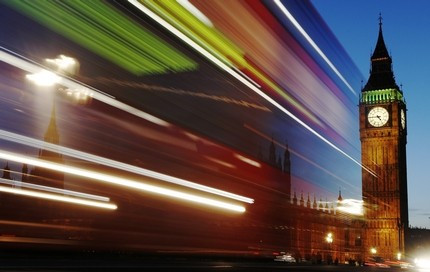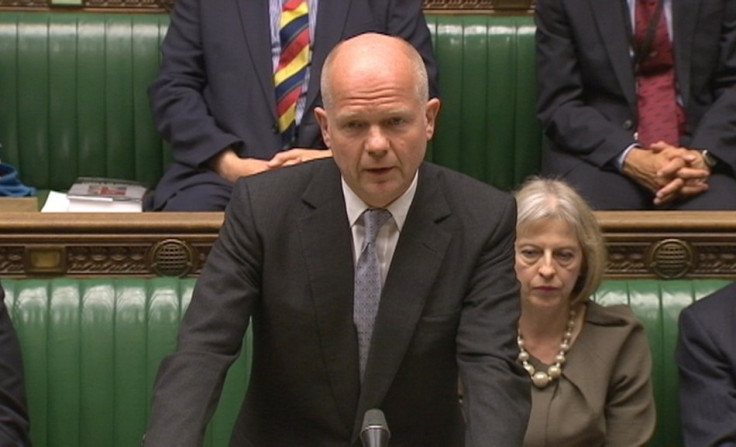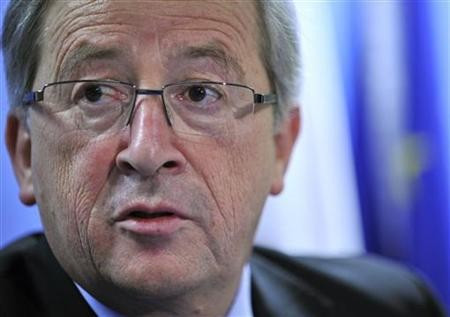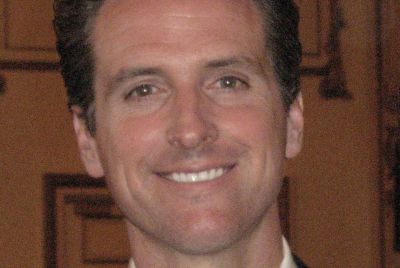Westminster Times: Effing Tories, Election Promises, Sneaky Health Plans And an EU Victory

Exactly 12 years ago, Conservative chairman Theresa May, now the home secretary, inadvertently rebranded her party.
She told a surprised party conference in Bournemouth: "You know what some people call us - the nasty party." And it stuck.
Now, after David Cameron has spent much of his time as a leader attempting to shed that image, he has done a bit of rebranding himself.
He told a meeting in Scotland that voters might see the referendum as an opportunity to give the "effing Tories" a kick.
Quite why the prime minister felt it necessary to sort-of swear, just because he was in Scotland, is a mystery. If it was an attempt at self-deprecation, or to shed some of his Old Etonian sheen, it backfired.
Just as many Tories were furious at May for handing their enemies a weapon, which has been used against them ever since, many in Westminster were less than impressed by Cameron's little outburst.
Alex Salmond seized on it during his big international press conference, saying: "I have never addressed the Conservative Party in such harsh terms... I am so much more generous than the prime minister."
And just imagine what the traditional, blue-rinse, country squire Conservatives think of the fact their own leader has given the world permission to call them all "effing Tories".
The words "effing Cameron" have been heard in Westminster - and not just from the opposition parties.

Promises, promises
William Hague, the effing Tory Commons leader, did his bit for the "No" campaign when he was asked by one of his own MPs exactly when the party had changed its policy and was now promising to give Scotland devo max if it rejects independence.
"The statements by the party leaders made on this in the last few days are statements by party leaders in a campaign, not a statement of government policy today, but a statement of commitment from the three main political parties," explained Hague.
He then added the promise was "akin to statements by party leaders in a general election campaign of what they intend to do afterwards".
How reassuring is that to those Scots who have claimed the devo max pledge is not worth the paper it's written on?
Quote of the week
From the letters page of the Daily Telegraph.
"Sir: What will Nigel Farage call his party if there is no United Kingdom?"
With thanks to Ian Smee, Wiltshire.
Mind you, what will the rump of the UK be called? The safe money is on, er, the United Kingdom.

Bottoms Up
Health secretary Jeremy Hunt has said he is sympathetic to the idea that drinkers who end up in hospital should be forced to pay for their treatment.
"I've always had the same view, which is basically that people should take responsibility and if it's through irresponsibility that they are costing all of us more as taxpayers then I don't have sympathy," he told LBC radio.
"I have a great deal of sympathy for the people who say we should charge people who use A&E because they go over the top on a Friday or a Saturday night."
This is such an old chestnut it is astonishing, not to say slightly depressing, that it has raised its head again. The problem with this populist sort of claptrap should be glaringly obvious and centres around who decided what is "irresponsible behaviour".
There are plenty of people who would consider setting off up a mountainside without proper equipment or clothing, or throwing themself off a cliff suspended underneath a large kite - would both qualify?
And where do you stop - horse riding, motor racing, running a marathon? The only option would be for everyone involved in anything like a mildly dangerous activity to take out private health insurance... oh, now I get it. Sneaky.

Little victory
It got lost in all the panic over Scottish independence but Cameron won a significant victory in Europe this week.
His new Brussels commissioner, Lord Hill (never heard of him) has been given the financial services brief by Commission president Jean-Claude Juncker.
Cameron had been desperate to win a big economic portfolio for Hill to prove to his rebellious backbenchers that he still had some influence and power in Brussels but there had been numerous reports that Juncker was not having it.
Not only was Juncker still smarting from Cameron's very public campaign to block him from getting the presidency, he did not think an economic job should go to a country outside the euro.
So the decision to give Cameron what he wanted was a real boost for the prime minister, who has not yet had a chance to boast about it.
© Copyright IBTimes 2025. All rights reserved.






















